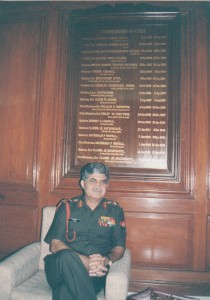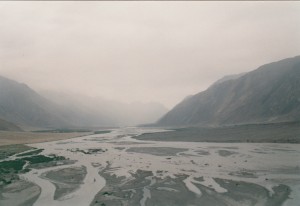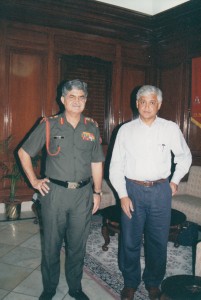AG. What sort of strategy can help prevent the many wars that are going on in Central Asia—Tajikistan and Afghanistan for example – from spilling over?
Gen. V.P. Malik. It’s true that the soldier’s job has become more difficult, given the whole spectrum from Low Intensity Conflicts right up to nuclear threats. And in between comes conventional war – and instability around your country is always a cause of concern.

And today what is happening in Afghanistan is not merely a concern for India, but for many neighbouring countries too. So we have to take those into account in our future strategies.
AG. Could nuclear weapons lead to force reductions?
Gen. V.P. Malik. Yes, it could happen because when the threshold comes down naturally then the requirement of forces will come down.
AG. It has been said that these nuclear weapons have really decreased India’s security by reducing its enormous conventional advantage over Pakistan. Would you agree?
Gen. V.P. Malik. I don’t think so. On the other hand I believe that now, things are more transparent, and transparency should introduce greater stability. Transparent in the sense that earlier we knew that people had something in the closet—now everything is out is visible. As far as our advantage in conventional weapons is concerned I think that stays because in the higher level, things have now equalized—so whatever advantage we have is still there, but the threshold, we are also conscious, will come down.
AG. So is there a possibility that a conflict willy-nilly will escalate into nuclear conflict?
Gen. V.P. Malik. No, I don’t foresee that— but I can say that we will not be threatening each other with these bombs. No professional will.
AG. But how can you be sure of that?
Gen. V.P. Malik. Nobody can be sure of that—Unless all countries do away with these weapons.

AG. Do you think the Siachen question can be resolved soon?
Gen. V.P. Malik. Everything can be resolved if you start talking to each other. If you refuse to talk, if you have only a one-point agenda and refuse to listens to others’ point of view it cannot be resolved. We have a task in hand and we shall do it.
AG. So you feel that there is no possibility of an accidental escalation into nuclear war?
Gen. V.P. Malik. I don’t think so. I think the professionals on both sides have been very responsible, in the ’65 war in the ’71 war. Both sides have avoided collateral damage as much as possible. So from the professional point of view there are no chances—
there are a great deal of responsibilities in the hands of professionals.
AG. But as you said they are not in hands of professionals always.
Gen. V.P. Malik. Yes, professionals are also instruments of the political authorities.

